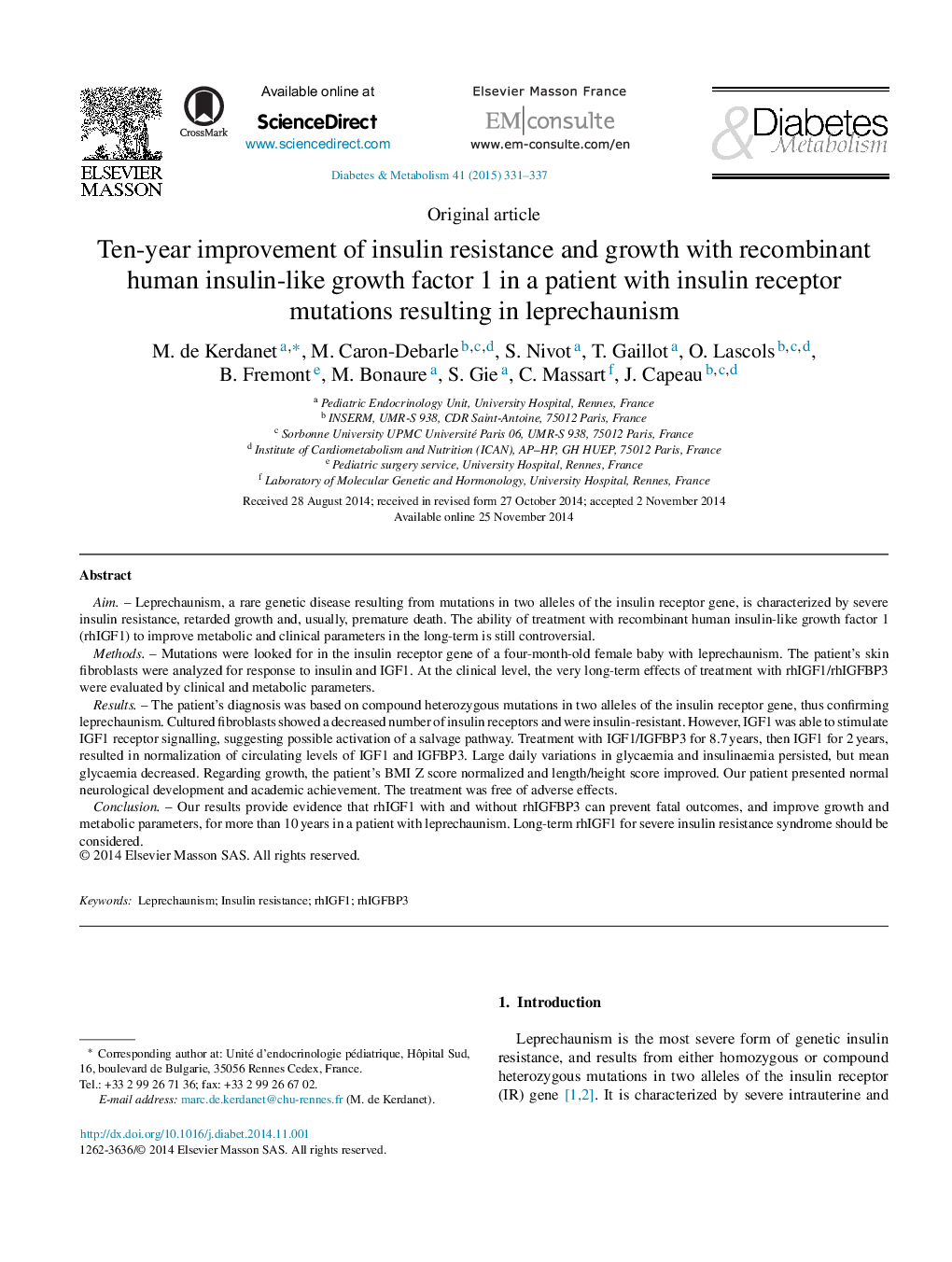| Article ID | Journal | Published Year | Pages | File Type |
|---|---|---|---|---|
| 3259234 | Diabetes & Metabolism | 2015 | 7 Pages |
AimLeprechaunism, a rare genetic disease resulting from mutations in two alleles of the insulin receptor gene, is characterized by severe insulin resistance, retarded growth and, usually, premature death. The ability of treatment with recombinant human insulin-like growth factor 1 (rhIGF1) to improve metabolic and clinical parameters in the long-term is still controversial.MethodsMutations were looked for in the insulin receptor gene of a four-month-old female baby with leprechaunism. The patient's skin fibroblasts were analyzed for response to insulin and IGF1. At the clinical level, the very long-term effects of treatment with rhIGF1/rhIGFBP3 were evaluated by clinical and metabolic parameters.ResultsThe patient's diagnosis was based on compound heterozygous mutations in two alleles of the insulin receptor gene, thus confirming leprechaunism. Cultured fibroblasts showed a decreased number of insulin receptors and were insulin-resistant. However, IGF1 was able to stimulate IGF1 receptor signalling, suggesting possible activation of a salvage pathway. Treatment with IGF1/IGFBP3 for 8.7 years, then IGF1 for 2 years, resulted in normalization of circulating levels of IGF1 and IGFBP3. Large daily variations in glycaemia and insulinaemia persisted, but mean glycaemia decreased. Regarding growth, the patient's BMI Z score normalized and length/height score improved. Our patient presented normal neurological development and academic achievement. The treatment was free of adverse effects.ConclusionOur results provide evidence that rhIGF1 with and without rhIGFBP3 can prevent fatal outcomes, and improve growth and metabolic parameters, for more than 10 years in a patient with leprechaunism. Long-term rhIGF1 for severe insulin resistance syndrome should be considered.
